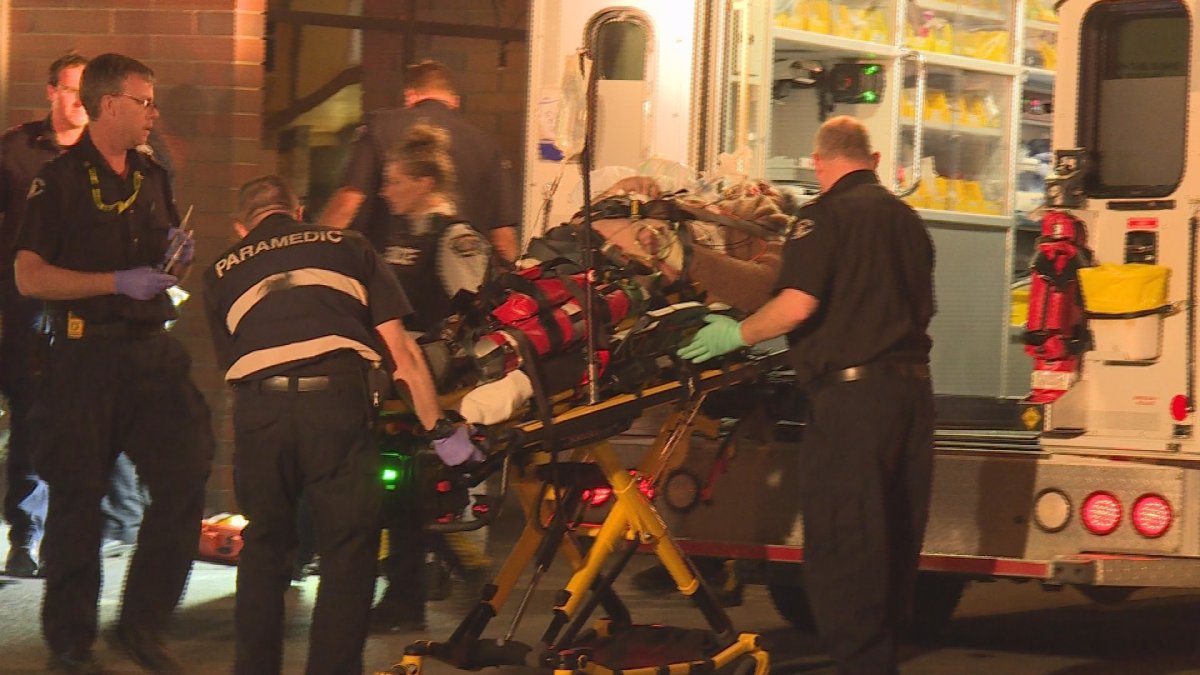A man was transported to Kelowna General Hospital in unknown condition Monday at 9:30 p.m. after being found in full cardiac arrest in the alley behind the Kelowna Gospel Mission.

RCMP and members of the Kelowna Fire Department assisted paramedics at the scene.
Paramedics performed CPR for at least ten minutes before the unresponsive man was loaded into an ambulance and taken away.
The event followed numerous medical emergency calls that first responders attended Monday evening in Kelowna; some of them were for overdoses, others for cardiac arrest or altered levels of consciousness.
Drug overdose victims are often called in as cardiac arrest patients.
Many overdose patients are quickly revived by Naloxone. Some patients require upwards of six doses. If an opiod drug is part of the overdose, the Naloxone should revive them.
Requests for further details from the fire department on the call behind the shelter on Leon Avenue were deferred to staff working Tuesday during business hours.
The B.C. Coroners Service latest stats show only eight per cent of illicit drug overdoses take place in outdoor locations like an alley.
It’s more likely a drug user will overdose from illicit drugs in a home.
Stats in B.C. show 63 per cent of recent overdoses happened in a private residence while 28 per cent happen in hotels, motels or public buildings.
Deaths from illicit drug overdoses are on the decline in B.C. in 2018, according to the B.C. Coroners office.
The B.C. Coroners Service ‘Death Review Panel’ made several recommendations earlier this month to help curb deaths from illicit drugs.
“The clearest finding that has come through this review is the reaffirmation that the biggest problem we face in terms of overdose deaths is the recent increase in drug toxicity,” panel chair Michael Egilson said. “In particular, the potency and content of illicit substances is unpredictable; this is why we’re advocating for access to safer drug use, including opioid agonist therapy, tools like drug checking and Take Home Naloxone kits, as well as an evidence-based treatment and recovery system of care.”
The panel’s full report can be found here.





Comments